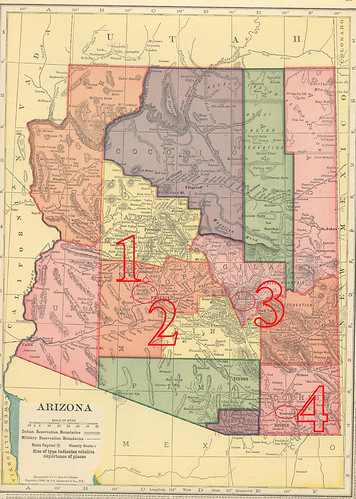We run our website the way we wished the whole internet worked: we provide high quality original content with no ads. We are funded solely by your direct support. Please consider supporting this project.
What About the Arizona Anti-Gay Bill?
The recent anti-gay bill in Arizona which was passed last week by the state’s Legislature and now sits on the desk of the Governor, would allow companies to deny service to or discriminate against gay people based on the religious beliefs of the business owner.
In response, Greg has tweeted:
“The governor of Arizona is considering signing into law a “Christian” sponsored bill allowing businesses to refuse service to GLBT folk…”
And …
“Ironic: Jesus PARTIED with the most judged sinners, ‘yet today some “Christians” fight for the “right” not to do business with them!”
And …
“If the devil wanted the best way to ensure that GLBT folk would want nothing to do with Jesus, he’d help “Christians” sponsor this bill.”
While Christian-promoters of this bill say that is about religious freedom (see this interview), we must honestly ask what’s really going on here. Is it really about religious freedom or about something else? The following is a quote from his book Myth of a Christian Nation where Greg challenges the idea that Christians should put themselves in a place of moral superiority, based on some kind of sin-grading system.
“[W]hen people assume the position of moral guardians of the culture, they invite—they earn!—the charge of hypocrisy. For all judgment, save the judgment of the omniscient and holy God, involves hypocrisy. … Instead of seeing our own sins as worse than others, we invariably set up a list of sins in which our sins are deemed minor while other people’s sins are deemed major. …
Our grading of sins has nothing to do with Scripture, of course, for Scripture no only has no such graded list of sins; it specifically teaches against such a notion. …
We feed our self-righteousness with this illusory contrast by ascribing ourselves worth at the expense of others. …
To illustrate, more than a few have noticed the comic irony in the fact that the group most vocal about ‘the sanctity of marriage,’ namely evangelical Christians, happens to be the group with the highest number of divorces in the U. S., which itself is the highest divorce rate in the world! … Whatever our excuses, outsiders legitimately wonder, ‘If evangelicals want to enforce by law the “the sanctity of marriage,” why don’t they try to outlaw divorce and remarriage? Better yet, why don’t they stop worrying about laws to regulate others’ behavior and spend their time and energy sanctifying their own marriages?”
Do evangelicals fear gay marriage in particulate because the Bible is much more clear about the wrongfulness of gay marriage than it is about the wrongfulness of divorce and remarriage? No, for the Bible actually says a good deal more against divorce and remarriage than it does against monogamous gay relationships. Do they go after this particular sin because the research shows that gay marriage is more damaging to society than divorce and remarriage? It seems not, for while one might grant that neither is idea, there’s no clear evidence that the former is socially more harmful than the latter. …
We evangelicals may be divorced and remarried several times; we may be as greedy and unconcerned about the poor and as gluttonous as others in our culture; we may be as prone to gossip and slander and as blindly prejudiced as others in our culture; we may be more self-righteous and as rude as others in our culture—we may even lack love more than others in the culture. These sins are among the most frequently mentioned sins in the Bible. But at least we’re not gay! …
So despite the paucity of references to homosexuality relative to the sins we minimize or ignore, and despite empirical evidence that some of the sins we minimize are far more harmful to people and to society than this sin (for instance, greed and gluttony arguably kill millions!), this is the sin evangelical as a group have decided to take a stand on. Why?” (136-138).
Category: General
Tags: Homosexuality, Judgement, Love, Myth of a Christian Nation, Sin, Social Issues
Related Reading

What Went Wrong in the Garden of Eden?
When Adam and Eve ate from the tree, they imposed their will into the center of Paradise, and this was the act that destroyed Paradise. They invaded the proper domain of God. Instead of recognizing that they were supposed to derive life from the center, they placed themselves in the center. They tried to become…

Are We Supposed to Balance Love and Truth?
Often people say, “Yes we must love. But we must balance love with truth.” “Love has its place, but we must not forget God’s wrath.” “Love must never take the place of correct biblical doctrine.” Two points need to be made. First, if we take seriously the biblical teaching that the love command is the…

Podcast: Are the Prohibitions Against Homosexuality Culturally Relative?
Greg considers if homosexuality is culturally relative or not, and what to do about it. http://traffic.libsyn.com/askgregboyd/Episode_0306.mp3

homosexuality, truth telling, and love
A Guy Taking Pictures via Compfight A couple weeks ago, we posted a portion of Greg’s sermon (and his comments) on the marriage amendment in Minnesota, homosexuality and finding a “Third Way”. Today we’re continuing the conversation by linking to a blog post by Sarah Bessey called In which I tell you the truth about…

Why do you argue that discipleship and politics are rooted in opposite attitudes?
Question. At a recent conference I heard you argue against the idea that there could ever be a distinctly “Christian” political position by contending that political disputes are premised on a claim to superiority while discipleship is fundamentally rooted in humility. I don’t think I get what you mean. Can you explain this? Answer: In…

Absolute Truth and Violence
A common argument today against Christianity is that believing that Jesus (or any other religious figure or religion) is the only way to God (See yesterday’s post) is “dangerous.” This claim actually has some justification, for it is undeniable that most of the butchery carried out throughout history has been done in the name of defending…

